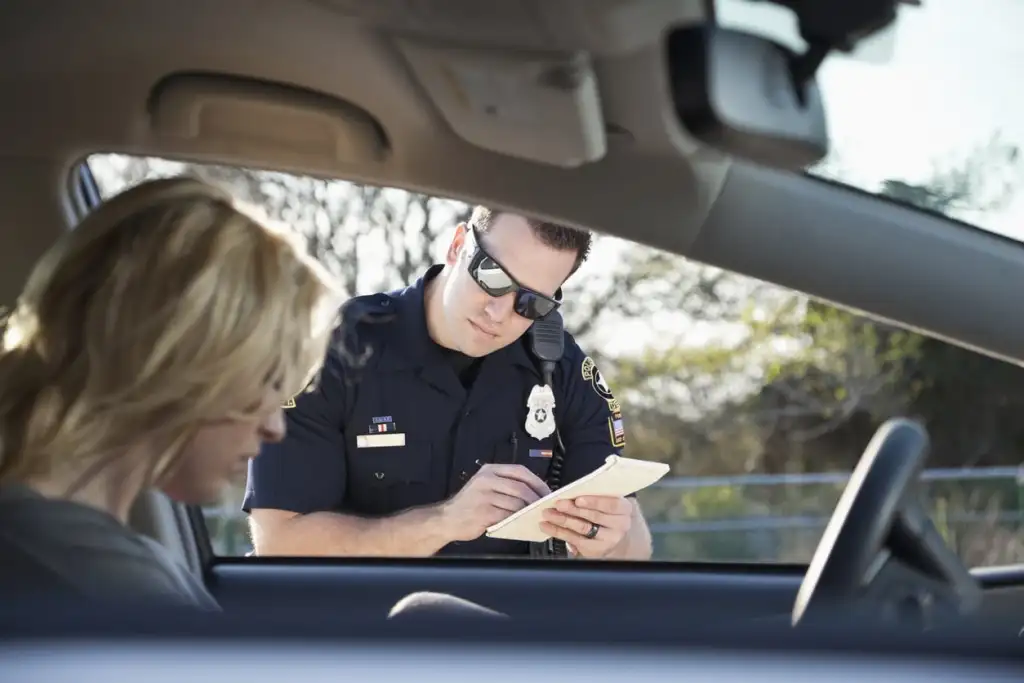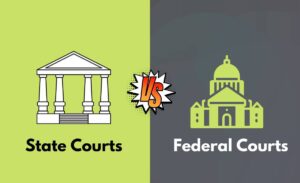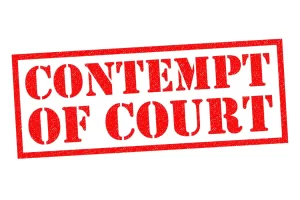How Often Do Cops Show Up For Traffic Court?
A traffic court appearance can be intimidating for anyone, regardless of whether they caused an accident or broke any laws. The idea of facing potential consequences can be nerve-wracking. However, not all consequences are equal, especially when it comes to cops showing up as judges. Interestingly, police officers don’t frequently attend traffic court, or at least their attendance isn’t widely tracked across the country. Cops are typically present during the arraignment of individuals accused of serious vehicular offenses such as hit-and-run driving, drunk driving, and reckless driving. However, for minor offenses like a broken tail light or expired license plate tags, police officers rarely appear in lieu of a prosecutor. But why is this the case? In this article, we’ll delve into the frequency of cops showing up in traffic court and explore the reasons behind their attendance patterns.
The Basics of Traffic Court
Understanding Traffic Citations
Traffic court is where individuals contest traffic citations they have received. These citations can vary from speeding tickets to more serious offenses like reckless driving or DUIs. When you receive a traffic ticket, you have the option to either pay the fine or contest it in court.
The Role of Police Officers
Police officers play a pivotal role in traffic court proceedings. They are typically the ones who issue citations, and their testimony can be crucial in determining the outcome of a case. However, their appearance in court is not guaranteed.
see also Findlay Municipal Court
How Often Do Cops Show Up?
Frequency of Officer Appearance
The frequency with which cops show up for traffic court varies from case to case and jurisdiction to jurisdiction. In some instances, officers make it a point to attend court hearings for traffic violations they have issued, while in others, they may not appear at all.
Factors Influencing Officer Attendance
Several factors can influence whether a police officer shows up for traffic court:
1. Seriousness of the Violation
For more serious violations, such as DUIs or accidents involving injuries, officers are more likely to appear in court. These cases often require their presence to provide testimony and evidence.
2. Jurisdiction Policies
Different jurisdictions may have varying policies on officer attendance. Some may require officers to attend all hearings, while others may allow them to delegate their responsibilities to other personnel.
3. Officer Availability
Officers have demanding schedules, and their availability can be a factor. Sometimes, they may have conflicting duties that prevent them from attending court hearings.
4. Administrative Errors
In some cases, administrative errors or oversights can lead to officers not receiving notice of a court date, resulting in their absence.
Implications of Officer Absence
Impact on Traffic Cases
The absence of a police officer in traffic court can have significant implications for both the prosecution and the defense:
1. Weakened Prosecution
Without the officer’s testimony, the prosecution’s case may be weakened, especially if the alleged violation relies heavily on the officer’s account.
2. Opportunity for Defense
For the defense, the absence of the officer can provide an opportunity to challenge the citation and question the accuracy of the allegations.
What Happens When Cops Show Up?
Instances of police officers attending court sessions are often linked to uncertainty surrounding the case. This uncertainty could stem from your arrest after an accident or doubts about whether you were driving under the influence. In these scenarios, police officers have more input due to prosecutors not possessing all case details from the outset. This might lead to an officer’s presence alongside or in place of a prosecutor at your traffic court appearance.
The Officer’s Dilemma: Sometimes Present, Sometimes Not
Most officers have valid reasons for not attending traffic court, but these reasons might not always be disclosed. Common factors causing police officer absenteeism include sickness, injuries, emergencies, other law enforcement commitments, non-law enforcement commitments, absenteeism, and lack of concern. Any of these factors could affect your court case, leading to the officer’s inability to attend.
see also Miami-Dade County Florida Court
Understanding Officer Presence in Court
When a police officer is present in court, there’s a definite reason behind it. They might have a specific purpose or be there to observe and maintain order. Regardless, understanding their presence is crucial for your case. If the officer who issued your citation is in court, they could be there for a few reasons:
- Testifying Against You: Although rare, an officer might be there to testify against you. In such cases, they will likely face questioning from the prosecutor and possibly your defense attorney.
- Verifying Your Identity: The officer might be present to confirm that you were the individual pulled over. This would involve questioning from the prosecutor.
- Validating the Citation: If the officer is there to validate the legitimacy of the citation, they will likely undergo questioning by the prosecutor.
- Observation: Sometimes, officers are present in court merely to observe without participating actively.
The Significance of Knowing the Officer’s Role
Being aware of the police officer’s role in court is invaluable. If you’re expecting the issuing officer to be present, you can prepare accordingly. Whether they’re questioning you, validating your identity, or simply observing, you can ready yourself for the interaction. If the officer is absent, the prosecutor might request a continuance to reschedule their appearance. It’s important to be ready for this possibility, as a continuance could prolong your case.
Conclusion
While encountering a police officer in traffic court is uncommon, the experience varies for each individual. Their presence doesn’t indicate guilt or the gravity of your case. Police officers have limited involvement in the court process, and their appearances are usually reserved for significant cases. Understanding their role can help you navigate the court proceedings effectively. If you’re ready to challenge a traffic ticket, consider seeking assistance from our specialized team of traffic ticket lawyers. Remember, preparation and understanding your rights are essential when facing a traffic court appearance.
see also Lawrence District Court
FAQs
- Can I expect a police officer to be present every time I go to traffic court? Not necessarily. Police officer presence in traffic court varies, and their role is determined by the circumstances of the case.
- Are police officers allowed to testify against me in court? Yes, if relevant. Officers can testify against you if their testimony contributes to the case.
- Why might a police officer be absent from traffic court? Absences can result from sickness, injuries, emergencies, or other commitments.
- Should I prepare differently if a police officer is present in court? Yes, being aware of their role can help you anticipate questions and responses.
- Can I defend myself in traffic court without legal counsel? While it’s possible, legal counsel can provide expertise and improve your chances of a favorable outcome.








